5. Our Little Sister (2015)
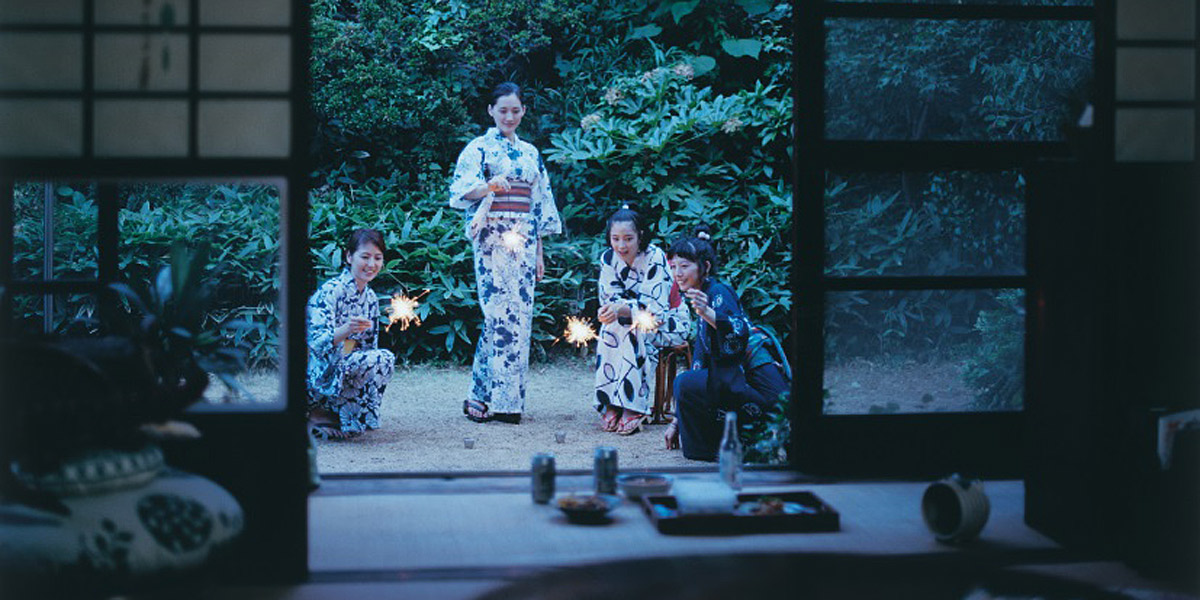
This 2015 release brings back Ozu’s recipe, picking little pieces from the all-time master of realism and drama, with his own elements of contemporaneity and the Japanese modern lifestyle. Koreeda, just like in “Still Walking”, shows a certain subtlety when approaching delicate subjects like the death of a loved one. It tells the story of three sisters who live together. The sisters are in their 20s, so they are quite young, and are joined by their 14-year-old half-sister after the death of their father.
In “Our Little Sister”, Koreeda dissects the inner “traumas” of a damaged childhood, putting together a fourth element into an equation of stability and preservation, building the perfect conditions for possible conflicts. Here, just like other movies, I can also see a bit of Kon Ichikawa’s dissection style of his characters, despite never pushing over the limit.
Just like Ichikawa, Koreeda builds his characters and studies them to prove a point. Again, that is successfully granted, albeit not as profoundly or even as painfully as predecessors such as “Nobody Knows” and “Like Father, Like Son”, but “Our Little Sister” does get a feeling of warmth and conflict, presenting another potpourri of mixed emotions.
4. After Life (1998)
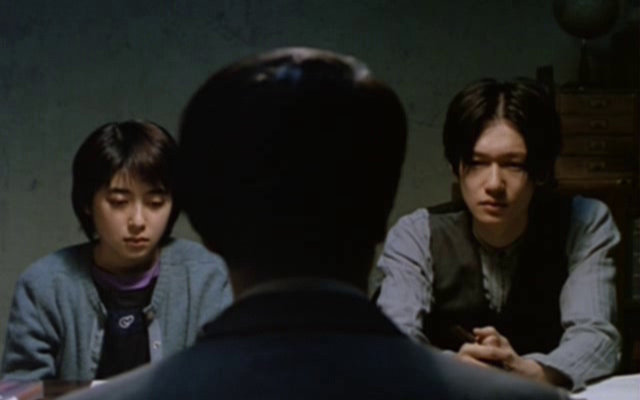
“After Life” is a quite contradictory movie; it is actually Koreeda’s most “fantastical” release, alongside his 2009 release “Air Doll”. It’s contradictory because, while on one hand it’s a fantasy due to its representation of a middle-stage for dead before entering heaven, on the other hand it’s quite advanced in terms of emotional exploitation and its singularity and importance in one’s life.
Again, one of the best dramatic directors, in recent memory, gets the job done with the study and “research” of one’s emotions and memories, symbolizing those same memories as eternal heaven that one will always feel and think, after life. The plot is based on some type of government building where the recently dead stop before going to heaven.
It’s some kind of “departure” or “send-off” building, where the dead must choose the happiest and most fulfilling memory, to live it and remember it, after being sent to heaven. Every week they have a new group of dead. Every Monday, they start interviewing the recently dead and inform them of this “procedure”. They have a deadline to choose those memories, in order to be recreated and watched right before their entrance into heaven. Koreeda focuses more on two of the workers and one of the dead, adding more realism to this quite emotional, splendid and surprising drama-fantasy.
Koreeda actually uses non-actors for some roles. Most of the interviews were scripted, but some of them were improvised with real people reminiscing about their own past.
3. Still Walking (2008)
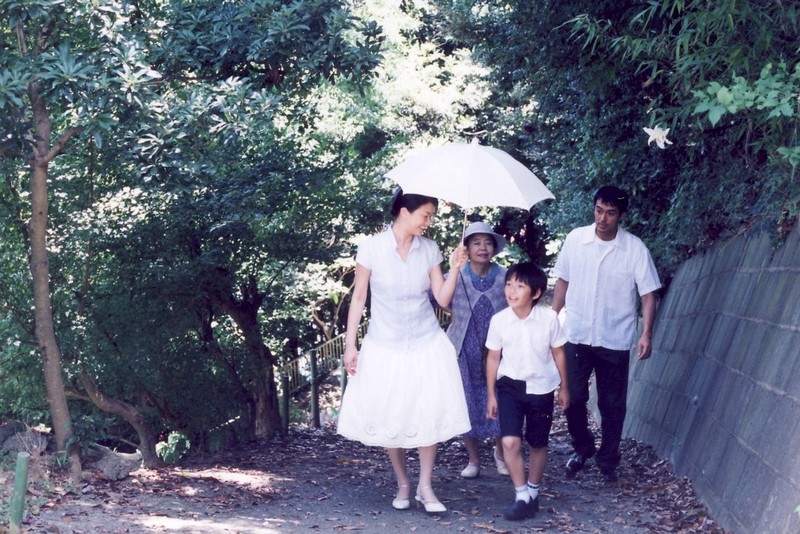
“Still Walking” could very well be an Ozu movie, if the movie wasn’t released in 2008 and if I didn’t know that Ozu is already dead. Koreeda, dramatically, approaches the subject of the death of a son, who tried to save another life 15 years earlier, in an extremely sensible manner without leaving strong sentimental feeling that sometimes may be hard to understand and accept.
This is a sort of the legacy Ozu left for contemporary directors and is the best example of how his legacy should be interpreted. It’s a potpourri of emotions and feelings, both happy and sad, with a greatly involved storyline and performances from the cast. It mixes the geniality of “Tokyo Story” (1953) and the innocence of “Late Spring” (1949), without leaving his own style behind. Koreeda is the best follower of Ozu, maintaining a steady interpretation of life, but always open to new ideas. It’s one of Koreeda’s hardest releases to take in, due to its heavy emotional characteristics that will leave no one indifferent.
2. Like Father, Like Son (2013)
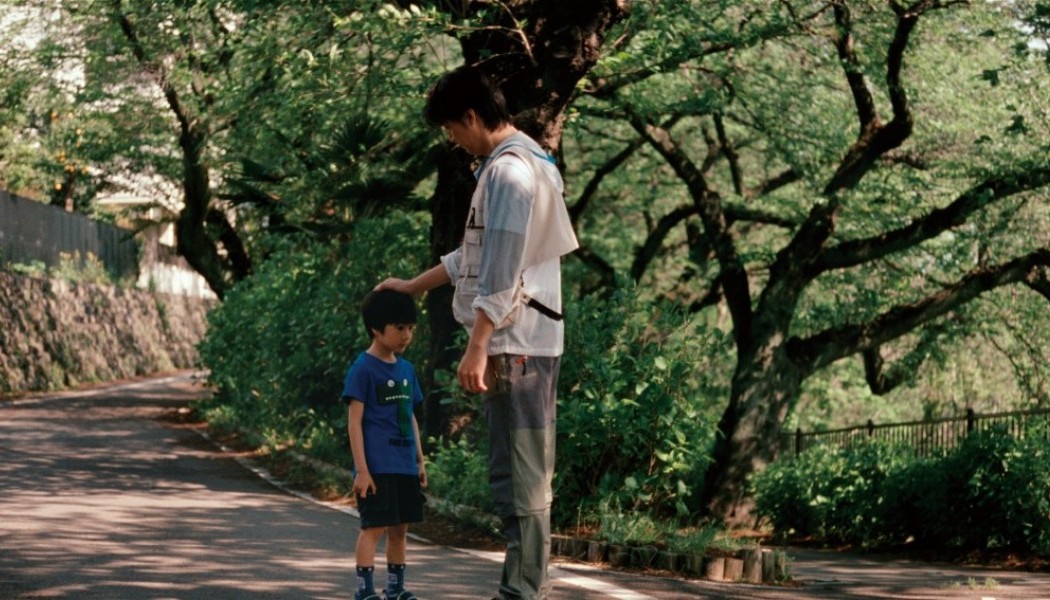
It mixes strange feelings and emotions, positive and negative, as it may be considered one of Koreeda’s best “polished” movies with a difficult storyline due to the degree of emotional reach the movie may have on its viewer. It does contain a happy encounter of sentimental reception due to its end, and the confirmation of the love between father and son, but also has its tragic perspective on the dubious feelings the father has for his son. I called it “polished” due to the aggressiveness of feelings it may cause toward the viewer. It is Koreeda’s confirmation as one of the best or the best Japanese director of the last 20 years.
It tells the story of Ryota Nonomiya, a businessman who lives for his work. He and his wife discover that their son isn’t their biological son and was traded for the son of another family. The father and wife have to face this situation and try to accept their biological son into their family, “trading sons” with the other family. Although it’s a shocking thing to do, Koreeda does try to understand how a family could react in such a dramatic case, clearly mixing sweet and happy emotions with very tragic ones.
1. Nobody Knows (2004)
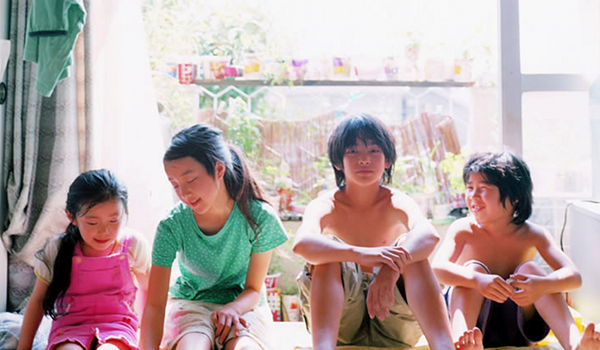
It’s Koreeda’s greatest effort to show Japanese reality and livelihood in an industrial power-house. Although “Like Father, Like Son” may compete with “Nobody Knows” as Koreeda’s best movie, “Nobody Knows” reaches that target more easily and effectively with a more interesting and dramatic story of four abandoned children living alone in an apartment. It is based on a true event referred to as the “Affair of the Four Abandoned Children of Sugamo” that occurred in 1988.
More than a dramatization of that event, it is also a critic of the poor conditions that many families live in Japan. Although being an industrial powerhouse and one of the richest countries on Earth, Japan still has that inequality problem, where in the poorest places you may find the worst conditions imaginable.
“Nobody Knows” won several awards, including Best Actor, Movie and Director at the 24th Cannes Film Festival. The four children learn to live alone in a confined apartment after being left abandoned by their own mother. The root of the problem comes from the mother, who is a drunkard and unstable. She is exploited by men who are only looking for sex, and because of that most of the four children don’t even know who their father is. The main character is Akira, who is only 12 years old and already the “patriarch” and responsible for his half-siblings’ well-being.
It’s a very disturbing movie, and it surprised me by its realism and harsh dramatization of a very frightening event. On the other hand, it has a certain “infantile” magic and innocence. The kids’ performance is just superb and is, perhaps, the best kids’ performance I can remember in recent years onscreen. “Nobody Knows” brings the best in everyone emotionally, and clears the path of ignorance toward a problem such as this. It’s magical, inspirational, thrilling, surprising, sweet but also disturbing, sad and sometimes difficult to watch.
Author Bio: João Braga is a content writer and freelance translator of 5 different languages. His passion for movies began 12 years ago, starting with Bergman, Kurosawa and Truffaut’s movies. He has a “soft spot” for the intelligent and genial French Cinema.